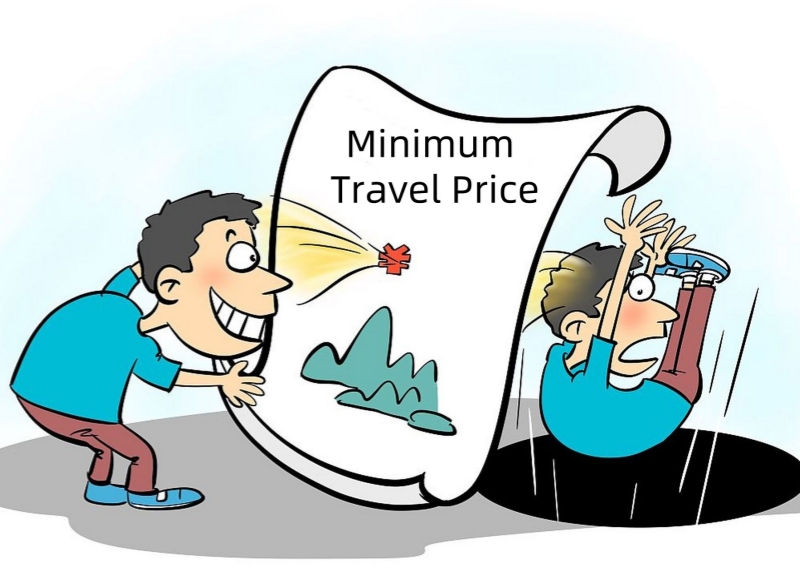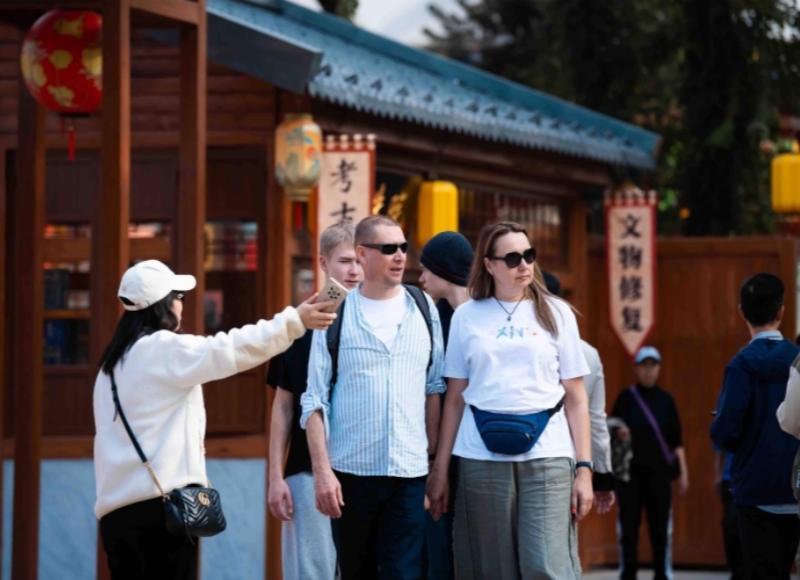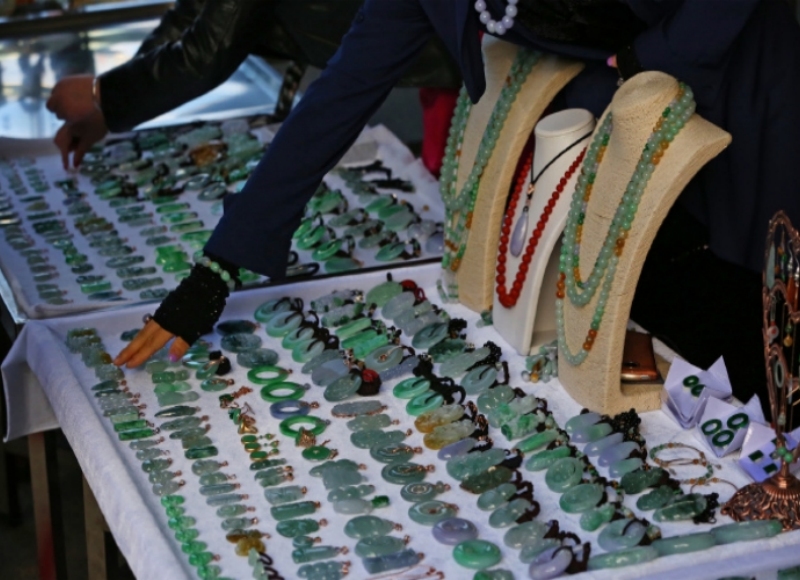
How to Avoid Illegal Tour Guides in China: Essential Travel Advice
By Leo
The culture, history, and scenery of China are breathtaking—but to fully enjoy all of this safely and smoothly, it’s crucial to understand one lesser-known but important topic: how to avoid illegal tour guides.
Many travelers are unaware of how prevalent unlicensed guides are and the serious risks they pose. I’ve encountered them, and I’ve also helped many clients recover from unfortunate encounters. That’s why I’ve created this detailed guide—to empower you with the knowledge to recognize and avoid illegal tour guides and instead travel with qualified, reliable professionals who truly have your best interests in mind.
Why You Should Avoid Illegal Tour Guides in China
Hiring an unlicensed guide in China isn’t just risky—it can seriously damage your travel experience. Illegal guides operate without oversight, which means no accountability, no training, and no protection for you. Since 2013, China’s Tourism Law has set clear rules to protect travelers, but violations still happen. Engaging with illegal operators can lead to financial scams, forced shopping, inflated prices, and even safety threats.
Real Risks from Illegal Tour Guides
Forced Shopping and High-Pressure Sales
I’ve seen how some unlicensed guides lead tourists to jade, silk, or tea shops not on the official itinerary—shops that pay them commissions. Tourists are often pressured, manipulated, or even locked inside until they buy something. It’s stressful and damaging.
Hidden Fees and Surprise Charges
What begins as a “cheap” tour often ends up costing far more due to hidden costs and upsells. Without a legitimate contract, you’re on your own if disputes arise.
No Accountability or Recourse
If something goes wrong—like a scam or misleading activity—there’s no agency to file complaints with and no refund or protection. Legal guides are held accountable; illegal ones are not.
Exposure to Unsafe or Illegal Activities
Some illicit guides may suggest illegal activities such as gambling, drug-related venues, or escort services. Others may become verbally aggressive if challenged. None of this has any place in responsible tourism.
Safety Concerns
Unlicensed guides often lack safety training, insurance coverage, and crisis protocols. I always emphasize this to clients: your safety should never be compromised for a discount.


How to Spot and Avoid Illegal Tour Guides in China
Step 1: Book Through Licensed Travel Agencies
Use trusted platforms like Trip.com or Ctrip, which partner only with registered guides. If the price seems too good to be true—it probably is. I’ve investigated many of these deals, and the hidden costs always come back to bite.
Step 2: Check Online Reviews
Before booking, review feedback on sites like TripAdvisor. Look for consistent reviews and verified experiences. Reputable agencies provide clear pricing and secure payment options.
Step 3: Avoid Self-Employed Individuals
In China, licensed guides must be affiliated with an approved agency. Individuals offering private tours without this backing often operate illegally.
Step 4: Know the Warning Signs on Arrival
Be extra alert in places like airports, train stations, or outside major attractions such as the Forbidden City. If someone offers you a “free” or “cheap” tour on the spot, walk away.
Watch out for these red flags:
- Hesitation to show their IC Card (tour guide license)
- Vague or constantly changing itineraries
- Unexpected stops for shopping or expensive restaurants
Step 5: Stay Vigilant During the Tour
Ask to see your guide’s IC card daily—it’s not rude; it’s smart. If your guide pressures you into unplanned shopping stops, firmly say, “We prefer to follow the planned itinerary.”
Use secure payment methods, like credit cards or mobile apps (Alipay or WeChat Pay), and request a fapiao (tax invoice) as proof of payment.
Emergency Readiness: What I Recommend Every Traveler Do
- Keep both digital and printed copies of your passport, hotel address, tour contract, and agency contact.
- Share your live location with a friend or family member.
- If you feel threatened, stay in public areas and call emergency services.
Important Emergency Numbers in China
- Police: 110
- Tourism Complaint Hotline: 12301
- Your Embassy: Keep this on hand at all times
Common Tour Scams in China (and How to Outsmart Them)
| Scam Type | How It Works | My Advice |
| “Too Cheap” Tours | Attracts you with a low price, then forces shopping or adds fees | Stick with mid-range or fair-market prices—you get what you pay for |
| Street Solicitations | People approach you offering tours in public areas | Decline politely and book through agencies only |
| “Government Outlet” Shops | You’re told a store is official, but it’s a tourist trap | Don’t enter shops not listed on your formal itinerary |
| Fake Credentials | Guide uses a fake or borrowed IC card | Verify the photo and English name on the card matches your booking |
| Tip Pressure | Guide demands large tips or “optional” fees | Clarify tipping policies in advance and don’t cave to pressure |
| Vague Plans | No clear itinerary, frequent last-minute changes | Demand a written reception plan from the agency upfront |


Understanding China’s Tourism Law: What Every Traveler Should Know
The Tourism Law of the People’s Republic of China is your best ally. Here’s what you need to know:
- Only certified guides may operate tours. Look for their IC card, issued by the National Tourism Administration.
- Forced shopping is illegal. You have the right to decline commercial stops.
- Tour pricing must be transparent—no hidden fees.
- Guides cannot steer clients toward illegal activities.
- You have the right to file complaints, and legal agencies must respond.
What Makes a Legal Tour Guide in China?
- IC Card: A plastic ID with photo and national emblem—always verify it.
- Written Reception Plan: A formal itinerary approved by the licensed agency.
- Agency Affiliation: Legal guides work only through licensed agencies.
- Focus on Cultural Touring: No surprise shopping stops or distractions.
- Clear Communication: Transparent about costs, schedules, and expectations.
Common Scams to Watch Out For (Beyond Tour Guides)
These are scams I’ve helped travelers avoid or resolve:
- Taxi scams: Overcharging or rigged meters
- Tea house scams: Friendly locals invite you, then charge $100 for tea
- “Helpful” locals: Scam artists pretending to offer help
- Counterfeit cash: Especially common in markets and taxis
- Art student scams: Fake “art students” pressure you into buying overpriced paintings
- Accommodation traps: Fake listings, hidden fees, or bait-and-switch hotels
- Jade & Silk scams: Fake goods sold at luxury prices


China is a spectacular place to explore—but traveling smart makes all the difference. Illegal tour guides are unfortunately common, but by staying informed, asking for credentials, and booking through trusted channels, you can ensure a safe, enriching journey.
If you’d like help booking a guide, understanding your travel, or choosing the best licensed tours, I’m here to help. Your safety and enjoyment are my top priorities—happy travels!
Explore More: